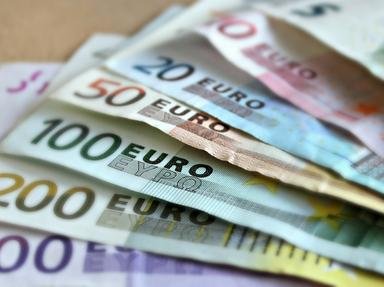Who Got the Euro in 2002?
Of the 27 member states of the European Union, not all use the euro as their currency. Only 12 of them converted their coins and banknotes on the earliest possible date: New Year 2002. Can you pick them out? Easier, 12 Qns, WesleyCrusher,
Sep 21 23





 Quick Question
Quick Question = Top 5% Rated Quiz,
= Top 5% Rated Quiz,
 Top 10% Rated Quiz,
Top 10% Rated Quiz,
 A Well Rated Quiz
A Well Rated Quiz